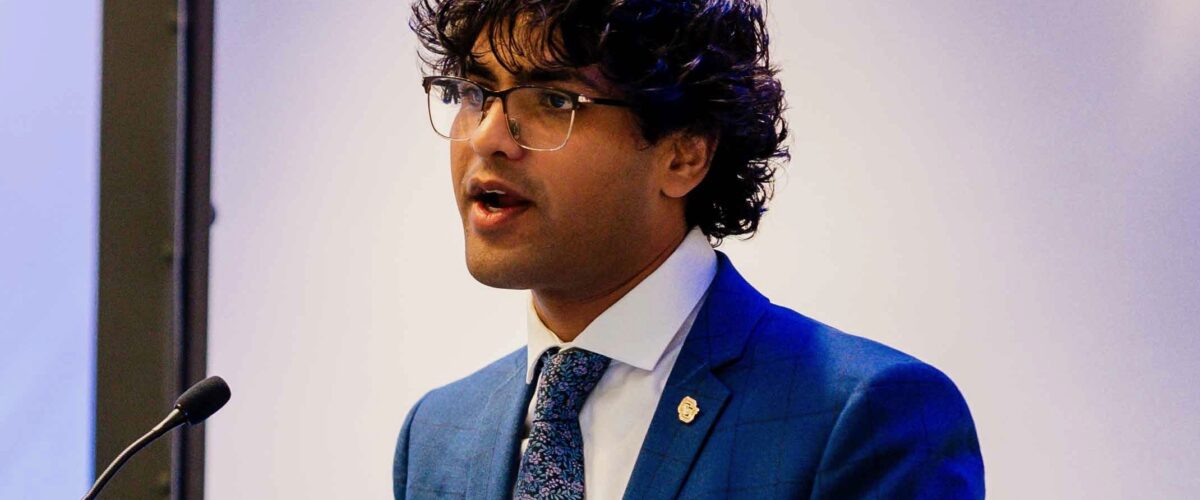
The state of human consciousness is continually evolving in an absurd and paradoxical manner. With each generation comes new ambitions, goals, standards, and even tolerance for certain behaviours. The rapid growth of technology aligns with the values of these respective eras, each carving out a new definition of what the term ‘success’ means to the average person.
From startups to influencer status, NIL deals to Amazon FBA, and managing meme pages, ‘success’ has taken many forms for them. The many ways one can become ‘successful’ are undoubtedly exponential, leaving many Gen Z’ers paralysed as to where to go from here. Within this chaotic spectrum lies Ezel Masih, a CU Denver Business School student whose journey captures the essence of what his generation is wrestling with beneath the surface: identity, pressure, ego, and the courage to carve out their own path, devoid of the expectations of those surrounding.
Masih emphasised the importance of courage, deeming it paramount in his success. “In my community, you grow up being told you’re going to be a doctor, lawyer, or engineer.” In a community where academic futures are often predetermined, his refusal to follow the traditional script and write his own play required belief in himself, even when no one else did. Masih carved out a place for himself within CU Denver’s Risk Management and Insurance program (RMI), a community that recognised his potential early and gave him the space to grow it. Masih was recognised as a Top 10 intern, a distinction earned through essays, mentorship recommendations, and performance scores, becoming the first CU Denver student selected for the WSA Marketplace internship.
He and his team are also the first student group ever selected to present at the 2025 CPCU Society In2Risk Conference, something he calls “unreal,” unprecedented in the organisation’s history. All of this came from choosing a lane no one expected him to take. As he put it, “I’m a brown kid studying business instead of medicine… and people are shocked.” Yet it’s this very decision, to resist expectations and build something unique and authentic to him, that makes him a clear example of the Gen Z experience.
“I’m a brown kid studying business instead of medicine… and people are shocked.”
Ezel Masih
Masih, like many in Gen Z, feels the weight of expectations, both overt and discreet: “People love putting me in a box… that’s one of my biggest pet peeves.” The desire to conform to these pre-set moulds becomes more attractive as youthful minds reel from the infinite options offered in today’s world. One of the biggest questions Masih’s generation collectively needs to ask is, “Who am I when there is no noise?” When the phone is off, the doors are shut, and it’s just an individual, their thoughts, their experiences, and the present moment. Finding internal alignment is essential to pursuing one’s true desires.
Those who have already answered this question, such as Masih, begin to tread uncharted waters – an original experience. With new experiences come new challenges, such as the internal negotiation between ego and confidence. While the instinct to assert your own identity in a world that insists on defining you is natural, too much ego derails you from reality. At the same time, too little confidence, and you disappear into the expectations around you. Ezel’s ability to interrogate this balance on the fly makes him stand out. Rather than suppressing this trait, he reframes it as a monitoring tool that must be managed and aligned with reality. Confidence becomes the grounded complement of that tool, built through repetition, reflection, adjustment, and feedback.
The old saying goes, “You are the sum of the 5 people you associate with.” From your closest friends to your dearest family, what they say and how they say it has a lasting impression on your actions. In some cases, such as Masih, there will be times when you need to venture out and find a different feedback loop, “I’m private about my life here in the business school… I don’t really tell my parents much other than I’m studying business, because then they’ll say it to their extended friends and family.” This is where finding a good mentor is paramount. There are many metrics for finding a mentor that suits you, but as Masih puts it, the most essential trait you can find is a “mentor that invests in you.”
Once we have all these tools, what next? Is that success? Masih does not think so. To him, true success is a collection of small wins. It’s the consistency with which you show up for the things you love, the feedback you internalise, and the repetition of execution. His perspective aligns closely with the philosophy of Kaizen, the continuous improvement, getting 1% better at a time. In an age of instant gratification, where results are expected immediately, Masih reframes success as a steady, intentional practice – yielding greater results for his future to reap.
The moral of Masih’s story: Believe in yourself. Believe in your reality, the lessons you’ve learned, the mistakes you’ve made, the trauma you’ve endured, and most importantly, where you are with your mind, and align yourself. Set the goal and move forward incrementally. Masih is an echo of the Gen Z consensus, a belief shaped through hardship, clarity earned through mistakes, and progress built one small move at a time.


